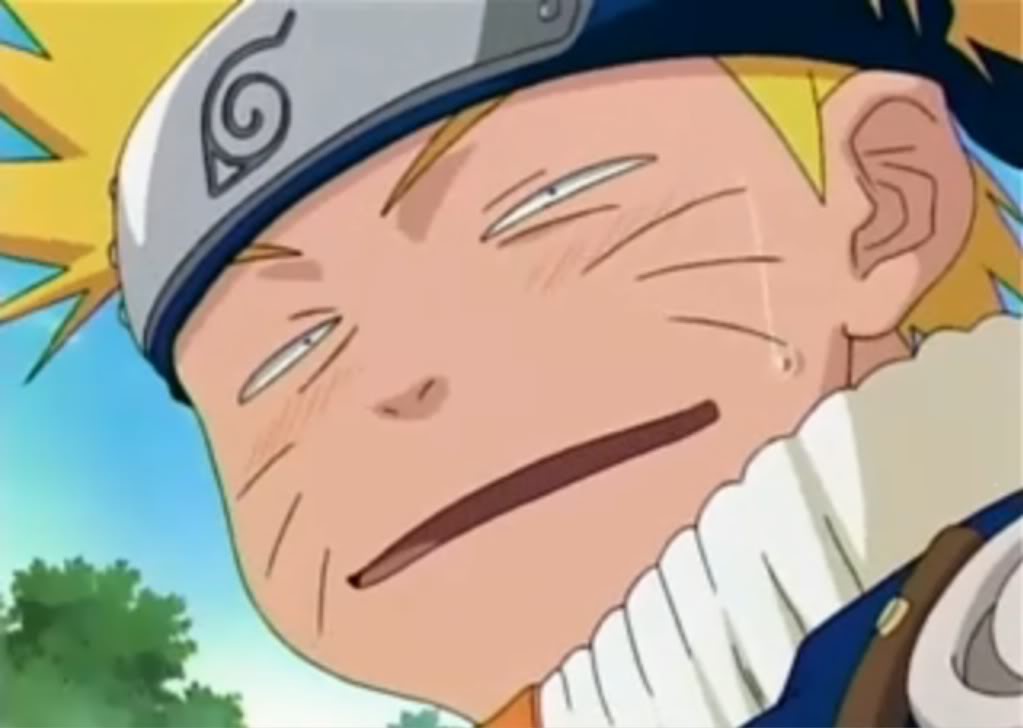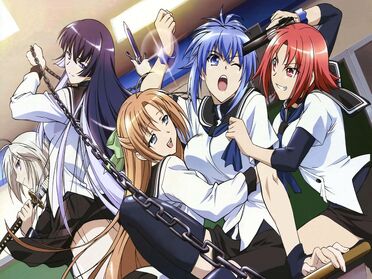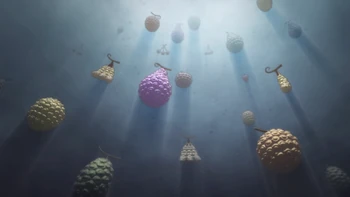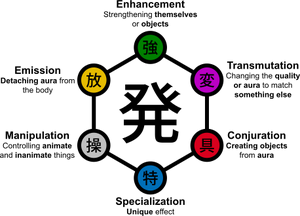Run With the Wind
 |
| I feel personally attacked. |
First up we have Relatable Problems. In episode 22, as King runs his section, he contemplates the nature of himself as a person. He had chosen to stay at the Chikusei dorm in pursuit of an ideal college experience, but his shyness and loneliness led him to overcompensate and create the King persona: someone who is simultaneously sociable and polite but creates a wall between himself and everyone else as he politely refuses invitations to hang out together, out of fear that he will ruin the relationship he already has with them. King became a man with a lot of acquaintances, but no real friends, and no matter what he tried to do, he always felt alone and out of place. But due to the nature of the Hakone Ekiiden, he finally has a group of people who rely on him and accept hm wholeheartedly for who he is. King passes the sash to Kakeru, who starts section 9 in 13th place. As Fujioka mounts a massive comeback for Rikudo, aiming to break the section 9 speed record, Kakeru surprises everyone watching as he begins to speed pass runner after runner, climbing through the ranks and making his way toward Fujioka.
Nothing I say will properly convey how much I loved this episode. I know how hyperbolic that sounds, but that is how I feel as I'm writing this segment. I know I've focused more on Prince and Yuki n the past, but after today, I don't think I've related to any character in this show more than I've related to King. I am a person who struggles to talk with other people. Even when I speak to family members or close friends who I have known for almost a decade, I am terrified of saying the wrong thing and losing their love, no matter how irrational that may be. It drives me to isolate myself, no matter how much I hate it, and is honestly a major factor in why I've been so drawn to fiction in general and to anime especially. King has found a place where he belongs, and, if I'm being honest with myself, I probably have as well. But the anxiety that I have, the niggling doubt that's in the back of my mind whenever I talk to somebody, never goes away, nor has it gone away with King either. He nervously asks Haiji what he plans to do afterward, secretly hoping that they can try to go for the Ekiden together next year even though he knows that the team wouldn't be able to stay together. He obsesses over his place in the race, not because he wants to win, but because he is afraid that he will be abandoned by the others if he underperforms. And I feel that, you know?
As for Kakeru, well, his scene was breathtaking. I know that people tend to relate more to underdogs -- after all, most of us don't have huge advantages in life -- but I've always found the perspective of prodigies like Kakeru fascinating. I was looking forward to hearing his thoughts during the biggest race of his life, but I was surprised with the direction that Producton IG took here. It seems that they reasoned that his character arc was already over by the time the race started, which is fair enough I suppose, and what we got instead was him just running. I know how dismissive that sounds, but it was beautiful. The imagery, the music, the inner monologue...everything comes together to create a tapestry of wonder that perfectly illustrates what running means to Kakeru. It's a zen-like state where he casts aside his fears and his doubts and just becomes the best version of himself that he can be. The other racers don't matter to him; he runs because he needs to cleanse himself of all his negative energy and beat himself. It's weird, but it's beautiful, and I absolutely love it, to the piont where I'm starting to tear up just writing this.
Boogiepop and Others
 |
| I have no words for how silly this is. |
Up next is Monster Hunter Tokyo. In episode 16, as the Distortion King's manipulations continue, sudden quakes begin to rock both the illusory world he created and the real Moon Temple. Boogiepop leaves Niitoki behind to investigate the tremors, and Niitoki is confronted by the Distortion King again. She offers her own theory as to the true nature of the creature: he is a split personality given form, possessing each of his victims and creating a new body from their own latent personality traits. Whatever that means. Kentaro attempts to make contact with Nagi outside, but he is interrupted by the Distortion King and revealed to still be trapped in an illusion. Or maybe he was thrown into a new illusion, I'm not sure. But unexpectedly, the source of the tremors is revealed to be Zooragi, an imaginary kaiju friend created by the young Makoto as a subsitute for Teratsuki, the father who abandoned him. But it seems that Makoto is a psychic with a lot of latent potential, and the power he inadvertently gave Zooragi leaks out into the real world, threatening the stability of the building.
Usually I'm down with Boogiepop being confusing, because there are usually enough clues to form a decent enough theory and you can still follow what's going on if you're paying attention. Even with how convoluted the Imaginator arc got, there was still a solid foundation of facts to build on, and the story as a whole was always entertaining. But this Distortion King arc is practically incomprehensible, and it really hurts my enjoyment of this episode. Aside from Kentaro, who is just a refreshing change of pace as he says what is on his mind in plain English, none of the characters have any dialogue that makes any sort of sense. Especially the split personality thing. It's one thing to say that people act differently depending on who they are interacting with, but I don't know how Suema and Niitoki can start from that premise and leap to the idea that people's hidden desires will manifest as a supernatural being in an illusion that takes the form of a dead guy who tried to kill you. Like, I can understand why the Distortion King may take the form of Nagi or Hinako -- both of them personify the desire to confess your feelings and apologize for misdeeds, respectively -- but what desire could Niitoki have that Saotome possibly personify? You know, the guy who took advantage of a genetically engineered monster girl with a codependent personality in a desire to kill his classmates and rule the world? The one who probably traumatized Niitoki? Yeah...I don't think she regrets seeing him die. I've been confused and annoyed by Boogiepop's navel gazing before, but the show has always followed through on its nonsense and made sense in the end, so I'm willing to stick it out a little longer for some much-needed answers.
Promised Neverland
 |
| I've got no clever caption here. This just looks awesome. |
In episode 11 of Awesome Moments: The Animation, Emma tells Ray the truth: she had recovered from her injury a while ago, but she was faking it in order to distract Mama while Dona and Gilda prepared the others for the escape. Emma tells Ray that she is ready to escape tomorrow afternoon, but Ray counters saying that escaping during the day is too risky. In order to ensure their escape, he plans to set himself and the house on fire, allowing Emma to lead the others away under the pretense of evacuation. Emma, naturally, is not okay with this, and manages to stop Ray just as he drops his match. She then reveals that she was lying to Ray just now: she actually plans to escape right then and there, as Norman left her a message explaining that he predicted that Ray would do this and told her to take advantage of the situation and escape with Ray in tow. Emma and Norman had actually revealed the truth of Grace Field House to several other children before Krone even died, and whle Emma acted as a distraction, the others made preparations for the escape, securing food, clothing, and medicine, and even going so far as to prepare a fake stand in for Ray. The children set the fire and escape, leaving behind Emma and Ray's severed ears in order to throw Mama off when she uses the tracking device. Just as Mama realizes that she has been tricked and prepares to go after them, their younger brother Phil grabs her sleeve and asks where she is going.
I told you this was going to be awesome.
The escape has officially begun in earnest, and what a great twist to begin with. I know that there is a temptation to give Norman all the credit for this plan, since he literally left instructions beyond the grave for Emma, but all he did as far as this plan goes is predict that Ray would try to use a fire and tell Emma to take advantage of that and outsmart both Ray and Mama. Emma is the one who suggested that the other kids be taken into the fold, correctly predicting that Mama wouldn't even consider observing them, and she is the one who coordinated all these kids and planned the actual escape proper. The most awesome part about all of it is that Emma is the only one who could have pulled it off. Only a visionary like her would have had the emotional intelligence to recognize that, since they are being bred and groomed to be geniuses in order to taste better, of course the other children would be able to handle the truth and would thus be an asset to the escape. It's brilliant, and it feeds into the core message of The Promised Neverland
I mentioned before that The Promised Neverland is about children losing their innocence and learning that society is not a kind place and is working to exploit you for all your worth, never caring about your health or your needs. This escape is a response to that issue: the only way survival in such a horrific world is possible is through cooperation and familial bonds. Instead of using people as tools like the demons, Mama, Krone, or even Norman and Ray, Emma understands that people are people, reaches out to them, and asks "What do YOU want to do?" It's never stated one way or the other, but I wouldn't be surprised if Anna or Thoma or another one of the younger siblings contributed to the plan in some way, because Emma is all about working together with her family, since it's the only way they can make it in the world. I'm still not sure if I like this or Mob Psycho 100 better, but this is one of the best episodes of the entire season and even most of the shows that I've reviewed in this roundup. If you aren't watching it yet, then go watch it now! No matter how much I must have spoiled you at this point, it's still very much worth watching!
Dororo
 |
| Once again, nothing really to say. This is just a really cool shot. |
Halfway done! Next up, in episode 11 of The Ninetales in the Fog (that was a dumb reference even for me), Tahomaru thanks Hyakkimaru for the rescue and pays him and Dororo for their trouble. As the two of them leave to explore Daigo's prosperous city, he and his retainers report their latest battle to Daigo himself. Noting his father's surprise at the news of Hyakkimaru, Tahomaru decides to continue his investigation and begins searching for Hyakkimaru. Hyakkimaru and Dororo, always looking for their next score, travel to the border fort of Banmon, reduced to only a single wall by the samurai of the rival Asakura clan, in order to battle the demon that has taken up root there and lift the supposed curse that the Asakura are said to have placed on Daigo's people. There they meet Sukeroku, a war orphan who is trying to return to his home on the other side of the no man's land between Daigo and Asakura's territory. As Hyakkimaru battles against the fire fox demon Kyubi (no, not that one), Sukeroku runs off. Dororo chases after him, but they both end up captured by Asakura soldiers. Meanwhile, Tahomaru learns the story of Hyakkimaru's birth from an insane former servant of his father, and Daigo confronts Hyakkimaru after driving away Kyubi with ease.
How is this only the halfway point of this anime? This feels like the start of a two part series finale! So much detail went into this episode that I honestly don't know where to start. I didn't even have time in my summary to mention the fact that there is a propaganda kabuki show about Daigo, or how his people clearly adore him, or how the old monk Biwamaru returns and shares a moment with Hyakkimaru and Dororo reminiscing about Mio before deciding to investigate the Hall of Hell. Not a single second of this episode's runtime went to waste, and it easily stands as the best episode of Dororo so far. And this was only part one!
Like I said, there's a lot of good in this episode, but I want to give special mention to a cool little detail I noticed. When Biwamaru looks upon Hyakkimaru, he sees the boy's soul as mostly gray with streaks of red, represented how Hyakkimaru has begun to become corrupted after killing the samurai during the Story of Mio. Then, at the end of the episode, Hyakkimaru looks upon Daigo, and sees the same color scheme on the man's soul. This suggests that even though Daigo did something unforgivable in sacrificing Hyakkimaru to the demons, he isn't entirely evil, as he has done a lot of good for his subjects. It's very cool that Mappa has decided to take such a morally ambiguous stance with this story, since, from what I have heard, the original was much more black and white, and I appreciate the implication that Daigo and Hyakkimaru aren't so different.
Finally, we have episode 11 of Converging Plotlines. In the wake of Harold's funeral, soldiers of Soleil are deserting and surrendering to the Empire. As the Empire pursues the final stages of its campaign, Yuki responds with a surprise announcement: the Soleil army has a new advancement in the mobile artillery, and she will use it in her campaign to retake Hariant. Unbeknownst to both sides of the war, the weapon is a distraction. Yuki's real goal is to travel to the ruins of Verde with Layla, Yuni, and Lune, where she will use the technology at an abandoned research facility to neutralize and destroy the chrars, theoretically putting an end to the combat and forcing the humans of both nations to come together in order to survive. But as they march to Verde, Yuki and her escort are ambushed by the remnants of Stella's squad.
How is this only the halfway point of this anime? This feels like the start of a two part series finale! So much detail went into this episode that I honestly don't know where to start. I didn't even have time in my summary to mention the fact that there is a propaganda kabuki show about Daigo, or how his people clearly adore him, or how the old monk Biwamaru returns and shares a moment with Hyakkimaru and Dororo reminiscing about Mio before deciding to investigate the Hall of Hell. Not a single second of this episode's runtime went to waste, and it easily stands as the best episode of Dororo so far. And this was only part one!
Like I said, there's a lot of good in this episode, but I want to give special mention to a cool little detail I noticed. When Biwamaru looks upon Hyakkimaru, he sees the boy's soul as mostly gray with streaks of red, represented how Hyakkimaru has begun to become corrupted after killing the samurai during the Story of Mio. Then, at the end of the episode, Hyakkimaru looks upon Daigo, and sees the same color scheme on the man's soul. This suggests that even though Daigo did something unforgivable in sacrificing Hyakkimaru to the demons, he isn't entirely evil, as he has done a lot of good for his subjects. It's very cool that Mappa has decided to take such a morally ambiguous stance with this story, since, from what I have heard, the original was much more black and white, and I appreciate the implication that Daigo and Hyakkimaru aren't so different.
Domestic Girlfriend
 |
| Surprisingly, this moment wasn't actually important. Just a one-off gag. |
Up next is Consequences: The Animation. In episode 11, after Rui learns the truth about Natsuo and Hina's relationship, she decides to keep it to herself and resolves to distance herself from Natsuo as much as possible. Kiriya announces to the Literature Club that Rui won an honorable mention in the magazine contest that he submitted their stories to. Feeling discouraged, Natsuo approaches Kiriya and asks to be his apprentice. Kiriya refuses, arguing that all writers have their own path to walk, but he does give Natsuo a reference book to help with story structure and agrees to critique the stories that Natsuo commits to write. When the class field trip to Okinawa arrives, Natsuo sneaks into Hina's hotel room in the middle of a fireworks show. Hina attempts to break off their relationship, but Natsuo counters with an offering of a cheap souvenir ring and a cheesy marriage proposal. Overwhelmed with emotion, Hina agrees to continue the relationship, and the two have sex. Upon returning to school, Hina is confronted by the head teacher with a photo that was taken of her and Natsuo kissing.
I know I probably don't make the best case for anime being a legitimate art form when I praise shows like Incestuous Harem Dumpster Fire over here, but I really can't help myself. This is my version of crappy daytime soap operas: melodramatic, pandering, and fetishistic, but I can't help but love it all the same. I love seeing real consequences come from characters' actions, and things don't get more consequential than this! Hina and Natsuo have been acting like stupid, hormonal teenagers, and now Hina may get fired, ostracized from her family, or even arrested! I mean, I doubt she'll be arrested, since I know the manga has been running since 2014, but still. This is an exciting prospect, and I cannot wait to see what happens next.
As for the rest of the episode, it was pretty good. Kiriya's speech about writing for the sake of writing and not for the clout of being a published author was nice, though I'm skeptical of the idea that Natsuo can churn out a short story every week. That just doesn't sound realistic. It'd be cool if we saw scenes of Natsuo struggling to meet this insane quota later on, but I doubt it will be a focus again in the near future since we have such a major cliffhanger to deal with right now.
The Price of Smiles
 |
| Once again, I forgot to grab a screenshot, so this one is from Google Images. |
You know, I think I finally understand what I find so appealing about this story. This is, essentially, the same plot as Fire Emblem Echoes, one of my favorite video games. Both stories are about a great war between large nations across a vast continent, told from the perspectives of two armies, that ultimately becomes less about the political stakes and more about the use of a greater power (chrars in Price of Smiles and the power of the gods in Fire Emblem) that once allowed for easy survival and progress but now threatens to kill them all if they continue to rely on it. Fire Emblem Echoes ends with an emperor and a princess killing the gods, putting humans in charge of their own destinies, and vowing to till the fields alongside the commoners as they work toward a better future as a single unified country, which is incredibly similar to Yuki's declaration to accept the responsibility for upending an entire planet's way of life and leading her people to prosperity without any shortcuts this week.
It's too bad the details of the story make Price of Smiles fall apart when put under scrutiny. In Fire Emblem, the war was already over when the actual fight against the gods began in earnest, so the actual question of what comes next was mostly moot. Yes, there were roving bands of outlaws preying on the innocent and starving in the post game, but the fact that Rigel and Zofia are united after Alm and Celica marry, along with the allied kingdom of mercenaries being founded by Saber and Jesse in the east, meant that peace, by and large, was achieved. Yuki's plan is skipping a few steps. In the absolute best case scenario, she disables the chrars and everyone just agrees to stop fighting, which is laughable when you consider this show's track record when it comes to things going well. Like, did she forget that regular guns still exist in this universe? Or that the struggle for resources and political unrest that led to this war still won't go away because she destroys the chrars? Or that the knowledge that led to the creation of the chrars in the first place still exists, and that more are still in production even as she goes to destroy them?
Look, I didn't hate this episode at all. It was an okay setup episode that broke tradition and showed both Yuki and Stella's perspectives, and I like the way that their meeting is being set up, with both of them fresh from the loss of the most important people in their lives and not entirely mentally stable, but it just feels weird that nobody in Yuki's inner circle is calling her out on the holes in her plan. Like, you know Harold wouldn't have agreed to this if he were alive. But that's just the way it goes, I guess. I'm still excited that Yuki and Stella are going to finally meet next week, but even that worries me. How is the finale of the series going to handle the two protagonists meeting, the end of the war, and the destruction of the chrars in a satisfying manner in just one episode? I guess that means I just have to keep watching the series to the end and find out next week, then, don't I?
And thus ends another installment of the Weekly Roundup. Next week, we have the series finales of Price of Smiles, Run With the Wind, and Promised Neverland! Boogiepop has two episodes left, Dororo is continuing into next season, and Domestic Girlfriend still has an undetermined amount of episodes according to MyAnimeList. But what will happen next? Will Yuki and Stella become friends? Will Haiji make it through the Ekiden without aggravating his injured leg? Will Phil meet up with the rest of the children as they escape from Grace Field? Will Boogiepop stop the Distortion King? Will Hyakkimaru battle Daigo? Will Hina get fired? Find out the answers to all this and more, or maybe less, next time!
















